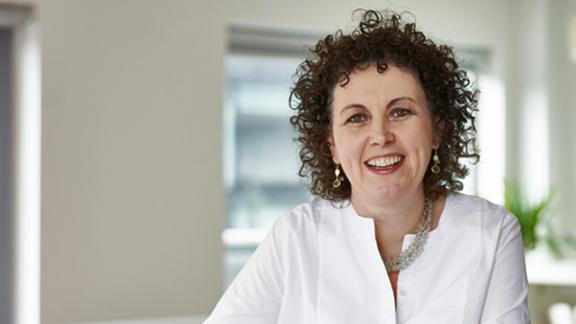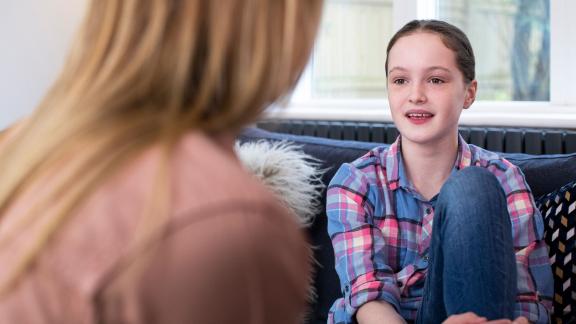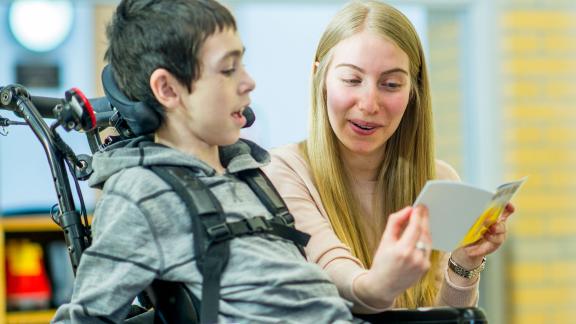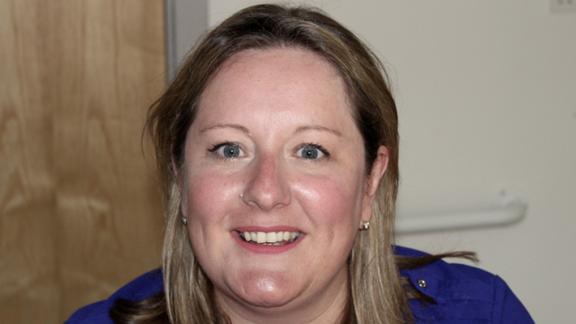The increasing need for children’s mental health services

This week is Children’s Mental Health Week. In this blog, chief executive of Place2Be, Catherine Roche, explains why supporting the mental health and wellbeing of children and young people has never been more important.
It’s nearly a year since my last blog, in April 2020. Back in those early days of the pandemic, we were already aware of the impact it was having on the mental health and wellbeing of many children and young people.
The latest data from NHS digital shows a notable increase in the prevalence of mental health issues among children. One in six children now have a probable mental disorder, that’s around five children in every classroom. This is certainly reflected in the increasing levels of anxiety and emotional worry Place2Be is seeing in the children and families we support across the UK. In secondary schools we are seeing an increase in high threshold safeguarding concerns such as self-harm and suicide ideation. Our drop-in service in primary schools reports a greater proportion of children discussing the impact of media coverage, bereavement and loss, family issues, and their community.
It’s Children’s Mental Health Week, an event created by Place2Be to bring the mental health and wellbeing of children to the nation’s attention. Never has this been more important than in 2021. In truth, we don’t yet know what the long-term impact of the pandemic will be. Dr Adrian James, President of the Royal College of Psychiatrists, has written that COVID-19 poses the 'greatest threat to mental health since the second world war'. The Centre for Mental Health predicts an additional 500,000 children under 18 will require mental health support and care due to the impact of the coronavirus crisis.
Now, and in the aftermath of the pandemic, it really is more important than ever that we use this opportunity to deliver the change in our national system, that is required to support the wellbeing of future generations. But how can we best do this? Here are some thoughts, based on Place2Be’s experience of supporting young people's emotional wellbeing over the past 25 years.
A whole school approach
Schools are places for learning in the fullest sense and are at the very heart of communities. They are places to support and enable a child to grow and develop. They are places to promote wellbeing, and for some children, they are a refuge. School is a natural and accessible place where you ask questions, test out ideas, without stigma, and can take advice and support from a trusted professional. If this space is opened up to provide mental health support in an easy and accessible way for children, we know they’ll use it. On average a third of all pupils refer themselves to our drop-in mental health service in any one year, developing a solution-focused approach and resilience along with their peers from an early age. Like the eight-year-old girl who told us: "Place2Be has helped me so much. I am more sure of myself and I have lots of friends now and I am so much happier."
Embedding mental health support in a school means creating an environment where adults look beyond behaviour to understand what a child is communicating. It involves building the ‘emotional literacy’ and attunement of the whole school community – from teaching and non-teaching staff to parents/carers as well as the school leadership. A child’s mental health is often affected by that of the adults around them. That’s why it’s so important for the whole school community to be mentally healthy and for everyone to understand their role.
Importance of intervening early
We know that half of adults with lifetime mental health problems first experience symptoms by the age of 14. So, intervening early and, in many cases, preventing the escalation of mental health concerns is vital. Eighty-one per cent of children with severe difficulties show an improvement in mental health, after 1:1 counselling with Place2Be. These outcomes are consistent year on year. It’s for this reason we firmly believe in the value of early intervention as part of a whole system, addressing issues before they escalate. However, this cannot be done in isolation, and access is required to more specialist support such as CAMHS where a child or young person needs this.
Joining up the systems
We need to see health and education systems continuing to make progress to work more closely together. School leaders and local NHS leaders can unite around making children’s mental health a priority in their schools and local areas.
The Mental Health Support Teams are being rolled out in England as part of the implementation of the Transforming Children’s Mental Health green paper. The teams have the opportunity to collaborate with voluntary and community sector organisations who have experience and understanding of the needs of local and diverse communities, often through partnerships established over many years. While it can sometimes seem challenging to engage with a disparate and unwieldy sector, the prize for us all to achieve is so great. It is worthwhile grappling with our systems along with the opportunity to innovate, leveraging the power, cost-effectiveness and reach of digital and together with the voice of our users, to transform the services we collectively provide for children and young people in our local communities.
Funding
The Spending Review in 2020 pledged an extra £500 million for NHS England for mental health services. We are yet to see whether any of this funding will go towards early intervention work in schools. Going forward, we should be aspiring to a whole school approach to mental health, for every school in the country. The next generation deserves to have good mental health, to give our children and young people the best start in life.
Catherine Roche is chief executive of Place2Be. Follow them on Twitter @Place2Be.



